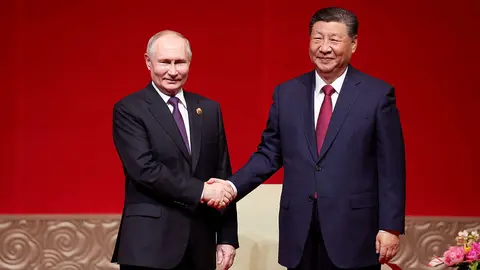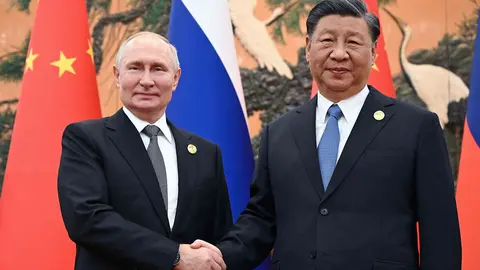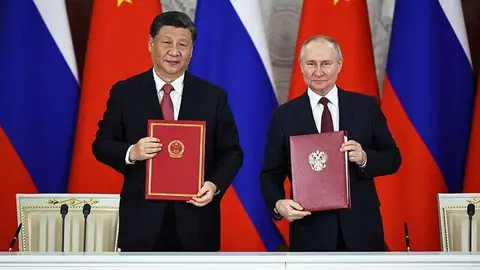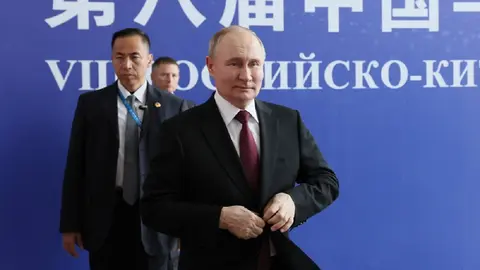Putin highlights SCO's role in creating a new world order
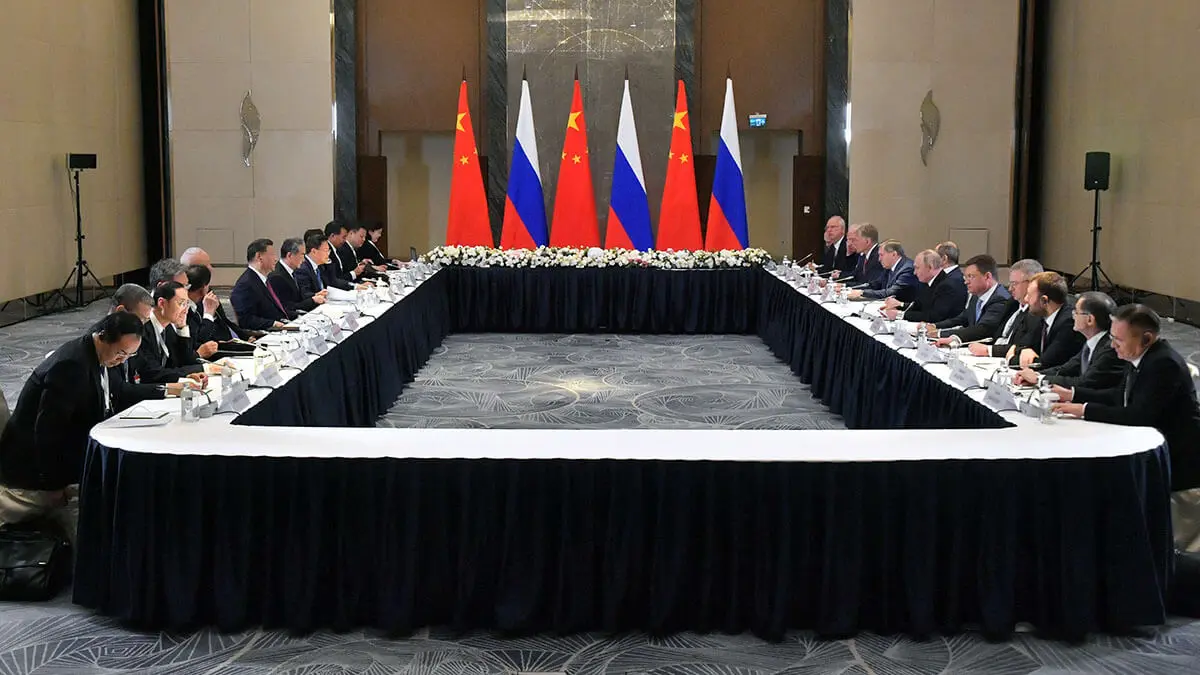
- Xi calls for resistance against "external interference"
- Erdogan presents himself as a mediator for a 'just peace' in Ukraine
Once again, Russian President Vladimir Putin and his Chinese counterpart Xi Jinping have praised the state of bilateral relations between the two powers and the impact that this alliance has on the world.
In his keynote speech before a bilateral meeting with Xi on the sidelines of the annual Shanghai Cooperation Organisation (SCO) summit in Kazakhstan, Putin said that Russia-China relations are going through "the best period in their history" and should be considered a "stabilising" force for the world.
"Russian-Chinese cooperation in global affairs serves as an important stabilising factor on the international stage and we continue to improve it," added the Russian leader, who also highlighted the role played by the two countries in the founding of the SCO, an alliance seen as a counterweight to the United States and its allies.
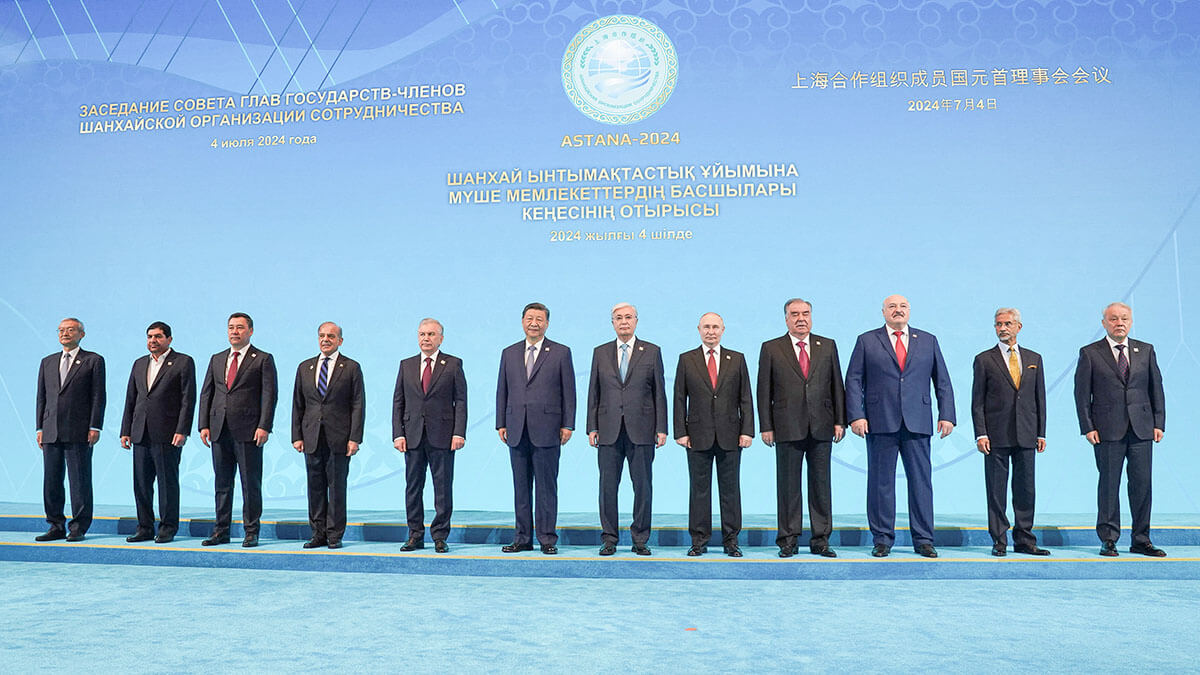
The Beijing-led regional organisation, created in 2001, aims to develop common approaches to joint security threats, counter any internal instability and strengthen economic partnerships.
The SCO is also a key pillar of Russia and China's strategy to change the world order based on US 'hegemony' to a 'multipolar' one. "As the number of participants grows, the SCO also takes on a more important role as one of the key foundations of a just multipolar world order," Putin explained, referring to the recent accession of Moscow ally Belarus to the bloc.
Belarusian leader Alexander Lukashenko said the Eurasian group was "demonstrating to the world that there are alternative international platforms, different centres of power", according to Kazakh state media.
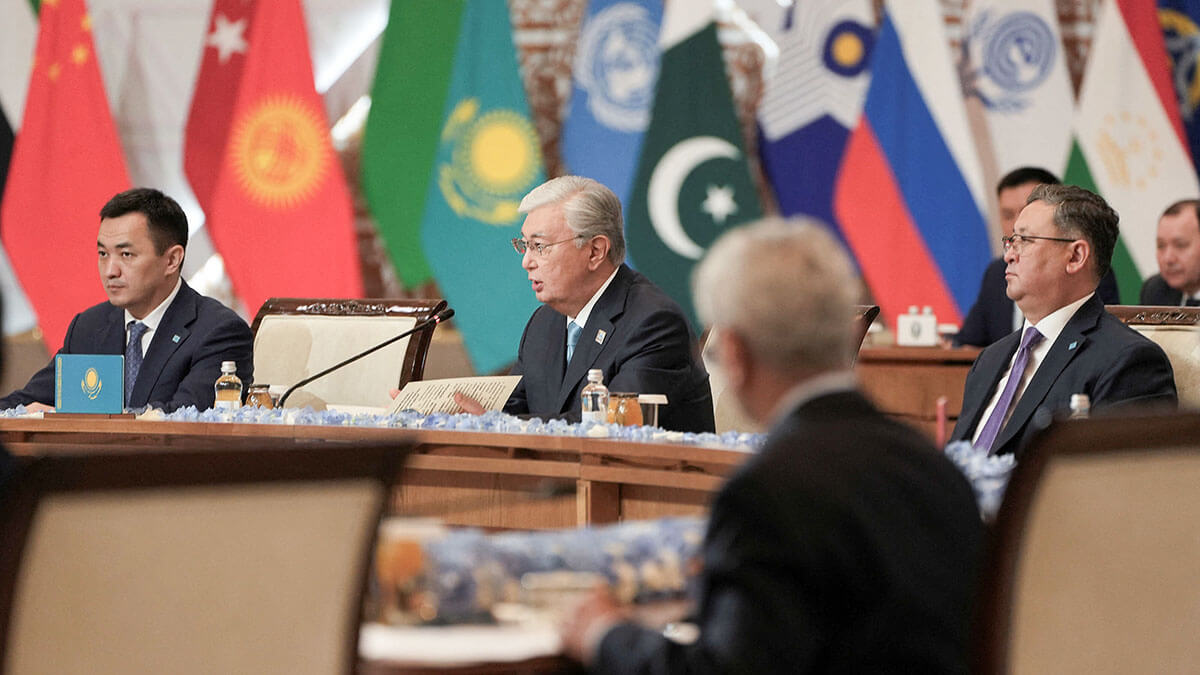
The Islamic Republic of Iran joined last year, the latest country to join the alliance after the SCO underwent its first expansion in 2017 with the accession of India and Pakistan. The other SCO nations besides China and Russia are Kazakhstan, Kyrgyzstan, Pakistan, Tajikistan and Uzbekistan.
The Russian president, during his speech, also made it clear that the SCO "is not directed against anyone". "We are not creating blocs or alliances, we are simply acting in the interests of our peoples," he said.
The expansion of the SCO coincides with that of the BRICS, another key tool in the Russian and Chinese strategy to establish a "multipolar" world order that is not led by the West.
Xi calls for resistance against "external interference"
Xi, for his part, cited the "turbulent international situation and external environment", saying Russia and China "should continue to defend their friendship for generations to come" and resist "external interference", AFP reports, referring to the US and the West.
The Chinese leader also announced that he had established "plans and agreements for the further development of bilateral relations" with Putin, whom he called an "old friend".
This meeting between Putin and Xi is the second in two months following the Russian leader's visit to Beijing in May to further strengthen the strong bilateral partnership.
However, despite this solid alliance, Moscow and Beijing continue to compete for influence in Central Asia, a region historically close to Russia but key to China's Belt and Road Initiative.
Erdogan presents himself as a mediator for a 'just peace' in Ukraine
In addition to his face-to-face meeting with Xi, Putin also met with Turkish President Recep Tayyip Erdogan, as his country was among the observer states participating in the summit along with others such as Saudi Arabia, the United Arab Emirates, Qatar and Egypt.
Turkey, despite being a NATO member, maintains close trade and economic ties with Russia. This rapprochement has led Ankara to position itself as a possible mediator in the Russia-Ukraine war.
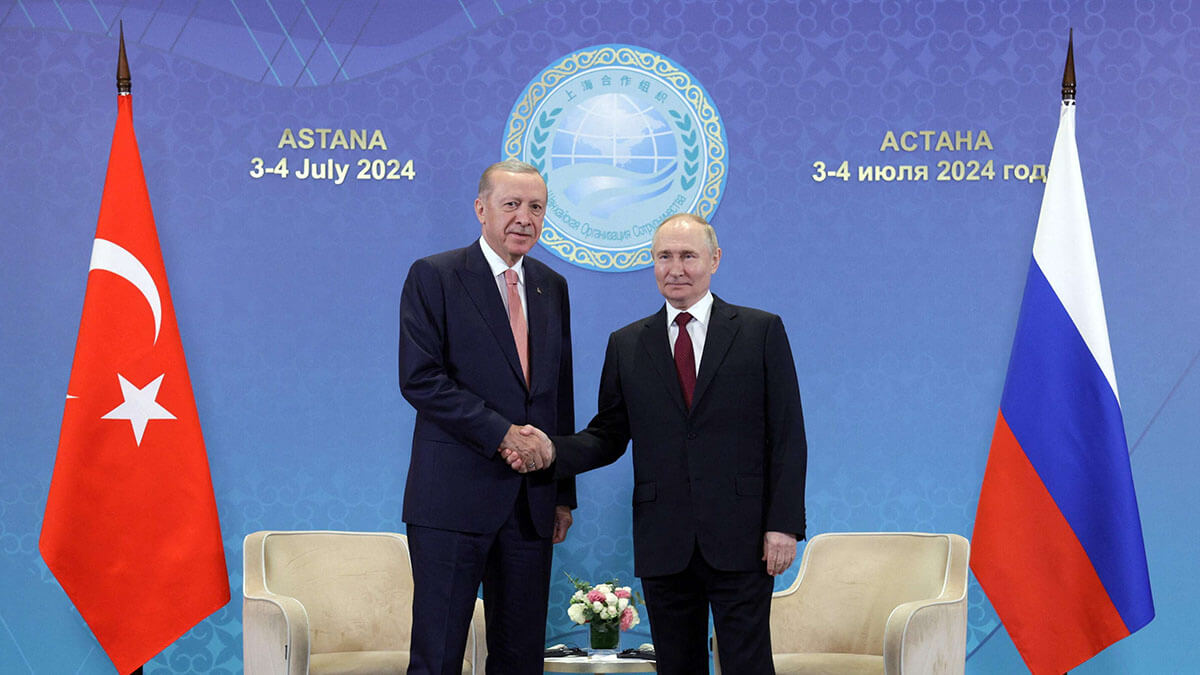
On the sidelines of the OSCE summit, Erdogan assured Putin that Turkey could "lay the groundwork for ending the war, first with a ceasefire and then with peace". According to the Turkish leader, a just peace that can satisfy both sides is 'possible'.
During the first months of the Russian invasion Turkey organised several rounds of negotiations - unsuccessfully - and helped broker a deal that allowed Ukrainian grain shipments across the Black Sea to resume. Similarly, Ankara has also pushed for prisoner-of-war exchanges.

